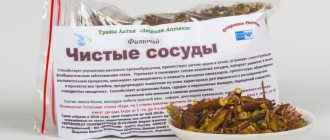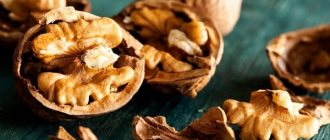Are you familiar with causeless anxiety and irritability? Do daily worries keep you up at night? These signs indicate that you are stressed or nervous. They can end in moral exhaustion and a nervous breakdown. How to save your nerve cells?
Instead of pharmaceutical drugs that cause lethargy and lethargy, try using calming herbs for nerves. They will help restore peace of mind, normalize sleep and improve overall well-being. Read the article about which herbs have a calming effect.
Herbs to calm nerves
Problems in your personal life, conflicts at work, excessive mental stress? All this hits the nervous system hard. The situation is aggravated by seasonal vitamin deficiency, debilitating diets and lack of sleep. As a result, even the sweetest and most friendly woman turns into an irritable, touchy person.
Buy mistletoe (herb) on our website
Herbal medicine can help you avoid a nervous breakdown. Herbs for nerves are used to prepare tinctures and decoctions, and are also added to relaxing baths.
What plants will help you calm down quickly?
In every person's life there are events that happen unexpectedly and unsettle them. The illness of a loved one, betrayal, slander and other unpleasant moments can provoke a nervous shock. The following plants will help you calm down and come to your senses:
- Valerian is the most famous plant for calming the nerves. Root tinctures are taken in small doses.
- Dill seeds have a relaxing effect. Dill decoction helps to quickly calm down and reduce high blood pressure.
- Motherwort is another effective herb for nerves. It helps to survive nervous shock and cope with insomnia.
- Maryin root has a powerful calming effect. Decoctions of the plant are recommended for people with increased nervous excitability and a tendency to hysteria.
- Mistletoe is used to quickly calm and treat neuroses. This herb is recommended for women to relieve premenstrual syndrome.
- Fireweed not only helps to calm down, but also relieves headaches.
- Adonis is used for hysteria, increased anxiety and sleep disorders.
Interesting fact
Mistletoe is a parasitic shrub that is widely used in folk medicine. This is what this interesting plant looks like:
What plants will relieve stress?
Hard work, preparing for exams, family troubles drive us into stress day after day. Have you begun to sleep poorly and worry about every little thing? Is irritability and the urge to cry exactly what you are experiencing? Then you should seriously think about how to strengthen your nervous system.
In order to get rid of stress, we advise you to take medicinal herbs. Here is a ranking of the best plants that will help you calm down:
- Thyme restores mental balance during prolonged depression, relieves headaches, and helps to establish sleep and wakefulness.
- Water pepper relieves tension, relieves physical and mental fatigue, and eliminates headaches.
- Chamomile has a slight sedative effect on the body. Decoctions of leaves and flowers help you sleep. When taken as a course, chamomile helps cope with stress.
- St. John's wort contains essential oils that have a mild hypnotic effect. The herb helps cope with bouts of irritability.
- Blue cyanosis helps restore the activity of the nervous system and restores normal sleep. It is recommended to drink the herb during attacks of anxiety and panic.
- Hawthorn flowers can be used for excessive fatigue and insomnia. They help improve heart rate and blood circulation.
- Leuzea helps to get out of depression. The plant gives vigor, improves mood, increases vitality.
Attention!
Under stressful conditions, jumps in blood pressure are sometimes observed. Hypertensive patients should not use Leuzea and St. John's wort as a sedative!
Are herbs that calm the nervous system allowed for children?
Taking herbal remedies is generally not recommended for children under 12 years of age. The main reason is allergic reactions. However, in practice, even pediatricians sometimes prescribe herbal medicine to young children, but the correct approach and caution are important here.
Admission rules for children
- Be sure to consult your pediatrician before taking it.
- Try to buy fees from trusted manufacturers. At the same time, it is better to give children pharmaceutical products, since they contain purified herbs; those collected independently can be much more harmful.
- Remember that sedative plants have a cumulative effect and do not always act immediately, but in no case should you increase the dosage to speed it up.
- Do not give decoctions or tinctures for up to 4 months.
Plants that are prohibited for children:
- citrus leaves;
- celandine;
- broom;
- sagebrush;
- tansy.
Do not miss
- Do not miss
9 foods you should never give to children
Can be given to children:
- mint;
- Melissa;
- St. John's wort;
- valerian;
- lavender;
- chamomile;
- plantain;
- motherwort;
- hop;
- series;
- oregano
All of them have a beneficial effect on the baby’s nervous system, relieve hypertension, and help him fall asleep.
Sometimes it is difficult to persuade young children to take plant-based medicine or drink even healthy tea. There is an option - soothing pillows made from herbs (you can buy them or make them yourself).
However, it is important to remember that children cannot sleep on such pillows the whole night; prolonged contact with herbs can cause an allergic reaction. It is better to limit yourself to 1 hour a day.
Do not miss
- Do not miss
If your baby doesn't sleep: 15 expert tips
Herbs for nerves: folk recipes
Now you know which herbs calm your nerves. We will tell you how to use them correctly further.
Tincture of cyanosis for neuroses
Do you want to overcome stress and insomnia? Then prepare a tincture of blue cyanosis. This herb can be purchased in our online store.
Instructions for preparing the tincture:
- put 3 tbsp in a glass jar. l. herbs;
- pour in 150 ml of vodka;
- put the jar in a dark place;
- leave for 2 weeks.
Take 2 tsp daily. healing infusion.
Helpful advice
It is better to take cyanosis tincture before bedtime.
Dill decoction for insomnia
Many housewives have dill seeds. Check to see if you still have them after the harvesting season? Dill decoction will help you calm down after a hard day at work and fall asleep faster. Write down the recipe:
- put 1 tbsp in a ladle. l. dill seeds;
- add hot water (500 ml);
- cook for 10 minutes in a water bath;
- let the broth brew for 40 minutes.
You can take this soothing decoction for 5-7 days. Drink a glass of the drink per day, dividing the liquid into 3 doses.
Important!
Dill seeds slightly reduce blood pressure, so it is better not to use this decoction for hypotensive people!
Soothing herbal bath
At the beginning of the article, we mentioned that medicinal plants can be used to prepare herbal baths. They will help relieve not only emotional, but also physical stress. Do you want to calm down and relax? Then use our tips:
- To prepare a bath, use valerian root, watch and mint leaves, and chamomile flowers.
- Take all medicinal herbs in equal quantities (15 g each) and place in a pan.
- For 60 g of herbal mixture you will need 2 liters of water: pour in the dried herbs and slowly bring to a boil, then turn off the heating.
- Infuse the liquid for 90 minutes, covering the pan with a lid.
- Add the strained infusion to the bath and adjust the water temperature (37±2C).
- Take a bath for 15 minutes.
If you take these baths for a week, the symptoms of stress will ease.
Medicinal plants will help you cope with increased nervous excitability, get rid of insomnia and even depression, so in most cases there is no need to take medications. We wish you health and peace of mind!
Recipes for soothing herbal infusions
- Take 1 teaspoon of mint or lemon balm, brew a glass of boiling water and let it brew a little. Drink as tea.
- Take 2 hop cones, pour a glass of boiling water, let it brew for 10 minutes. You can drink it with honey.
- Brew 1 teaspoon of chamomile flowers with a glass of boiling water. When the tea has cooled a little, add a teaspoon of honey.
- Brew 2 teaspoons of oregano in 100 ml of boiling water. Insist. Drink in small portions throughout the day, especially before bed.
- Mix 2 parts each of St. John's wort and motherwort and 1 part each of yarrow, chamomile and mint. 1 tbsp. Brew a spoonful of the mixture with a glass of boiling water and let it brew for about 30 minutes. Take half a glass of decoction half an hour before meals 3 times a day.
- Take 1 tbsp. spoons of chamomile flowers and lemon balm leaves and mix with 0.5 tbsp. spoons of mint and hop cones. Brew 1 teaspoon of the mixture in a glass of boiling water, leave and drink shortly before bed.
- Take 3 tbsp. spoons of oregano, pour 0.5 liters of boiling water. Leave for a couple of hours and drink half a glass before meals 3 times a day.
These and other medicinal preparations have a positive effect on the functioning of the nervous system of an adult, and some of them are even suitable for children.
Contraindications
Herbs contain many active substances, so they can only be taken after consulting a doctor.
Many herbs are contraindicated for children and pregnant and lactating women, people with problems of the cardiovascular system, chronic diseases of the liver, gastrointestinal tract, and allergy sufferers.
There is also always a risk of individual intolerance to certain herbs.
If you are convinced that there are no contraindications, feel free to apply the advice from this article: we have collected the best recipes using the most effective herbs for nerves.
When is herbal treatment effective?
Initially affecting a person’s mood and behavior, gradually problems with the nervous system begin to affect the entire body and lead to a very noticeable deterioration in overall health: headaches, dizziness, indigestion, pressure changes, shortness of breath, a feeling of a “lump in the throat.”
Therefore, at the first appearance of alarming symptoms, it is necessary to consult a doctor who will select the optimal treatment, including phytotherapeutic, that is, based on herbs that help with nerves and stress.
The use of herbs with sedative properties is a healthy alternative or complement to drug treatment. Unlike most pills, herbs are natural, and their use, if used correctly, will only bring benefits to the body without side effects.
Passionflower
Passionflower (other names: “cavalier star”, “passion flower”) actively affects our central nervous system and has a relaxing effect on the muscles. She fights anxiety, insomnia, nervous fatigue, neuroses, asthenia, and nervous overexcitation. Passionflower is a mild natural tranquilizer. It quickly calms the nervous system and helps the body normalize its activity.
Thanks to this medicinal plant, headaches, cramps during menstruation and pain that appeared due to nervousness disappear without a trace. Passionflower also helps to get rid of painful sensations in the neck that appear due to incorrect posture. She struggles with irritability and bad mood.
Passionflower contains saponins, amino acids, pectin, ascorbic acid, potassium, tannins, etc.
If you want to make sedative passionflower tea, then you need to pour 1 teaspoon of the raw material into 150 ml of boiling water. The drink is infused for 15 minutes, then filtered through cheesecloth or a special strainer and drunk warm. The tea should be taken immediately before bed, as it has a pronounced sedative effect.











